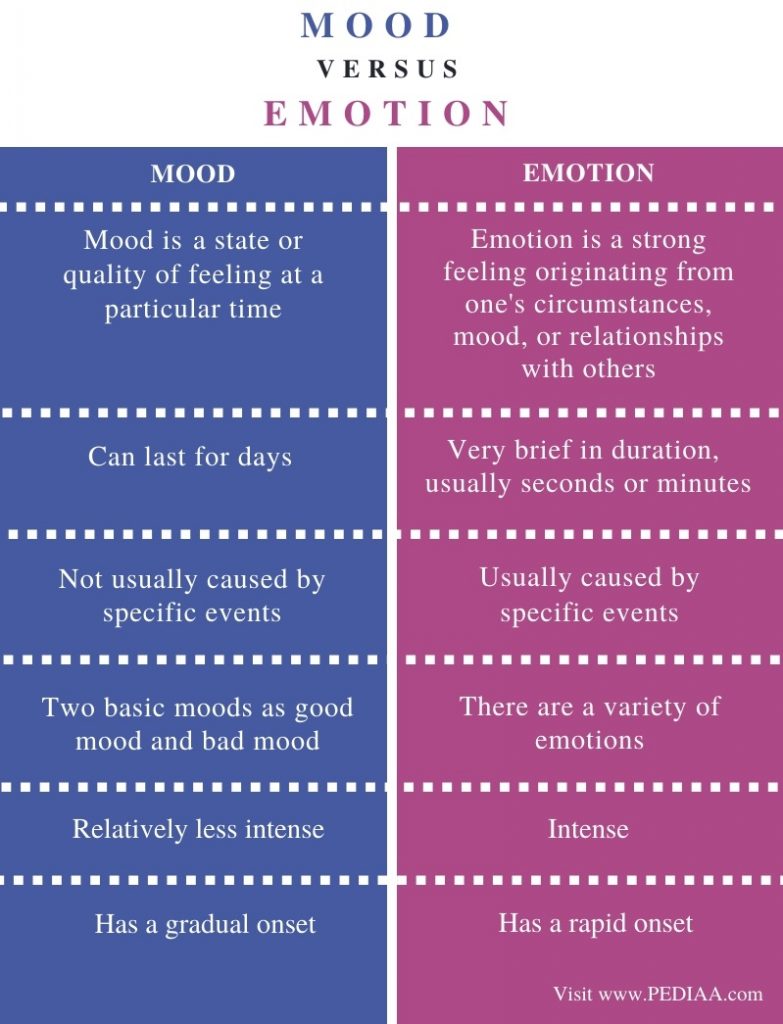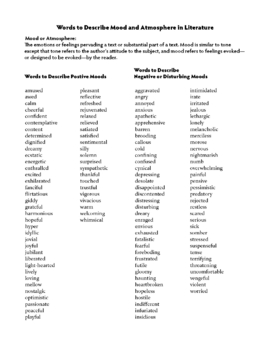


And, if someone gives you a shirt or a tie or you hate, make sure you smile and tell them you are delighted with the gift, but keep the gift receipt. Saying you’d be delighted to do something is like saying you’d be “thrilled” or “excited” to do it, so use this word carefully. When you’re delighted with something, you probably feel like smiling, laughing, chuckling - maybe even snorting. You might even feel a weightless sensation, hence the root-word “light.” It’s hard not to say the word “delight” without smiling. When you feel delighted, you feel happy, joyful, and free. 7 ADJECTIVES TO TALK ABOUT HOW YOU FEEL IN ENGLISH 1.
#Words to describe two different types of moods free#
We design our worksheets so that they can be used for self-study, or in class with a teacher.įeel free to send me a message if you have any questions, and I’ll be happy to help.Ĭontinue reading and learn 7 adjectives to talk about your feelings. In today’s post, we’re going to talk about 7 adjectives that English speakers actually use to talk about their feelings, reactions, and moods:Īnd, whether you’re an English learner or teacher, you should also check out one of the free worksheets we’ve created to accompany this worksheet.

That’s why we recommend doing what we do, which is turning to movies, television, videos, and podcasts, and articles to find new vocabulary.īut you don’t have to do that today, because we’ve done it for you! If that describes you, it’s not your fault! Historically, textbooks and English-learning materials haven’t done the best job of keeping up-to-date on expressions that English speakers actually use every day. You might say you feel “angry” when you’re really just “annoyed.” Or you might say you feel “depressed” when you’re really just grumpy. We all have lots of complicated emotions, and sometimes we need different adjectives in English besides “happy,” “sad,” and “angry.”īecause, if you’re like a lot of English learners I’ve met and taught, you sometimes feel like you rely on the same adjectives over and over to talk about how you feel.


 0 kommentar(er)
0 kommentar(er)
